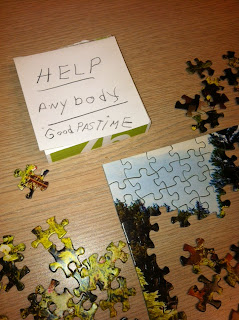Last month I visited Direct Supply (DS) headquarters in Milwaukee, WI, traveling with an associate to evaluate furniture and equipment options for a new SNF. I delayed this trip for several months despite the encouragement from my DS reps. It turns out that I should have taken their advice sooner. The trip was 25% sales pitch but 75% quality professional education. If you have the opportunity in the future, I encourage you to take it. I learned more on this trip than most seminars and conferences I have attended.
First of all, here's what you can expect in terms of trip logistics:
-It takes two days to fully tour the DS headquarters and product lines;
-Direct Supply is the Google of the LTC industry; they have a fun work environment, awesome benefits, and an inspirational story;
-Take two items: comfortable shoes and a camera; you will walk several miles and want to remember a number of specific products you demo; you will see ten buildings and hundreds of innovative FFE offerings;
-DS paid our hotel, food and beverage; they were very hospitable;
-DS asks you to pay your own travel expenses.
More importantly, we learned about so many products. I've purchased a lot of beds, mattresses, lifts, carts, etc. in my lifetime but never really understood the differences between various products lines and models. I'm part of an independent not-for-profit, so I don't have corporate staff advising me on the latest technology and offerings. One example:
We still use the 1.5" blue mats next to resident beds to reduce injury from out-of-bed falls. Turns out those are practically obsolete. Now they offer 1/4" versions that are more effective, don't have to be moved during day, and look like floor rugs. I honestly had no idea. I've already order some replacements. Sales pitch + education is okay if it benefits your residents.
Here are some of the items we had the chance to test and learn about:
-Electric beds
-Pressure-relieving mattresses
-Clinical monitoring equipment
-Lift equipment and assistive devices
-Wheelchairs
-Floor care equipment
-Housekeeping equipment and carts for all areas
-Kitchen equipment from hoods to teaspoons
-Furniture, including living rooms, dining, and resident rooms
Direct Supply also offers several services, notably TELS. You will learn that their TELS product is a web-based maintenance tracking, life safety code scheduling, and inventory management system. TELS is designed to be the centerpiece of your facilities maintenance program, serving as both a maintenance request system as well as scheduling, tracking and documenting your annual regulatory requirements. Here are the facts:
-$97 per month, per facility for unlimited users
-Designed for all facility staff to use as maintenance request system 12-month scheduling system for LSC, PM
-Requires some Direct Supply input of information
-Has iPhone capability for easy entering and receiving of new maintenance requests (great feature)
Many large for-profit organizations use TELS and when considered as a monthly cost $97 seems reasonable. When comparing to a one-time software purchase, however, the fee may be excessive for your organization. The biggest drawback is the built in dependency for DS to scan and upload your key documents and scheduled annual tasks. We plan to trial the system for a few months and will ask our Director of Facilities to determine if this system is worth the input time and associated maintenance costs.
Overall our trip to Direct Supply was well worth the expense and time. You've seen the catalog, but it's only a small portion of what Direct Supply really offers. DS is an employer of choice in Milwaukee, an expert in long term care, and an advocate for quality and process improvement. I highly recommend you make this trip if it is offered to you and your organization. Even if you are not a direct purchaser, chances are your maintenance, environmental, and nursing departments are buying products from DS. I suggest you educate yourself on the latest products to better serve your residents and employees.
Submitted by Matthew G. Maupin, HFA












